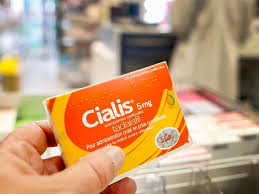
Eliquis: A Comprehensive Guide
Eliquis is a widely prescribed anticoagulant, crucial in preventing blood clots in various medical conditions. It’s imperative for patients and caregivers to understand its uses and implications. If you are considering Eliquis for your treatment, you might want to check out this resource: Eliquis https://farmakeioorama.gr/agoraste-eliquis-se-apeytheias-syndesi-choris-syntagi/. This article will delve into its mechanisms, therapeutic applications, and associated risks.
What is Eliquis?
Eliquis, generically known as apixaban, is an oral anticoagulant that blocks certain clotting proteins in the blood. It belongs to a class of medications known as direct oral anticoagulants (DOACs) and is commonly used to reduce the risk of stroke and blood clots in people with atrial fibrillation, a common heart rhythm disorder. Additionally, Eliquis is prescribed for treating and preventing deep vein thrombosis (DVT) and pulmonary embolism (PE).
Mechanism of Action
The primary action of Eliquis involves inhibiting Factor Xa, a crucial enzyme in the coagulation cascade. By blocking this enzyme, Eliquis effectively reduces thrombin generation and clot formation. This mechanism allows the drug to prevent the formation of harmful clots that could lead to serious complications like stroke.

Indications for Use
Physicians prescribe Eliquis for various conditions, including:
- Atrial Fibrillation: Reduction of stroke risk in patients with non-valvular atrial fibrillation.
- Venous Thromboembolism: Treatment and prevention of DVT and PE.
- Postoperative Patients: Prevention of blood clots in patients undergoing knee or hip replacement surgeries.
Benefits of Eliquis
Eliquis offers numerous benefits that make it a preferred choice among healthcare providers:
- Oral Administration: Unlike traditional anticoagulants that require regular monitoring, Eliquis is taken orally, providing convenience for patients.
- Reduced Risk of Major Bleeding: Studies suggest that Eliquis has a lower risk of severe bleeding compared to some other anticoagulants.
- No Requirement for Routine Lab Monitoring: Patients on Eliquis do not need frequent blood tests to monitor their INR levels, which simplifies management.
Potential Side Effects
As with any medication, Eliquis is not without risks. Patients must be aware of potential side effects, which may include:

- Bleeding: The most significant risk associated with Eliquis is bleeding, which can range from minor bruising to severe hemorrhage.
- Gastrointestinal Issues: Some users may experience nausea, diarrhea, or stomach aches.
- Allergic Reactions: Though rare, some individuals may have allergic reactions to Eliquis, presenting as rash, itching, or trouble breathing.
Considerations and Precautions
Before starting Eliquis, patients should consider the following:
- Medical History: Disclose any history of bleeding disorders, liver or kidney disease, or allergies to medications.
- Drug Interactions: Eliquis can interact with other medications, including certain antifungals, antibiotics, and antiretrovirals. Always inform your healthcare provider of all medications you are taking.
- Pregnancy and Breastfeeding: Consult your doctor if you are pregnant, planning to become pregnant, or breastfeeding, as Eliquis may not be safe in these situations.
How to Take Eliquis
Eliquis is usually prescribed to be taken twice daily, with or without food. Adherence to the prescribed schedule is crucial for effectiveness. Patients should not discontinue use without consulting their healthcare provider, as stopping Eliquis abruptly can increase the risk of clot formation.
Conclusion
Eliquis is a vital medication in the management of thromboembolic disorders, offering significant benefits and relatively manageable risks. However, as with any anticoagulant, careful monitoring and communication with healthcare providers are essential to ensure safety and effectiveness. If you or someone you know is considering Eliquis as part of a treatment plan, further research and professional advice will aid in making informed decisions.


